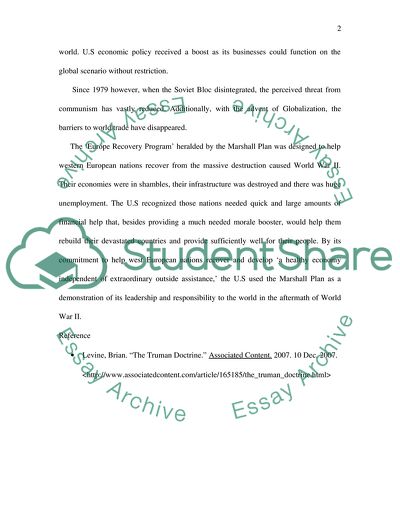Cite this document
(The Truman Doctrine - The Cold War Assignment Example | Topics and Well Written Essays - 1500 words - 7, n.d.)
The Truman Doctrine - The Cold War Assignment Example | Topics and Well Written Essays - 1500 words - 7. https://studentshare.org/history/1710803-history
The Truman Doctrine - The Cold War Assignment Example | Topics and Well Written Essays - 1500 words - 7. https://studentshare.org/history/1710803-history
(The Truman Doctrine - The Cold War Assignment Example | Topics and Well Written Essays - 1500 Words - 7)
The Truman Doctrine - The Cold War Assignment Example | Topics and Well Written Essays - 1500 Words - 7. https://studentshare.org/history/1710803-history.
The Truman Doctrine - The Cold War Assignment Example | Topics and Well Written Essays - 1500 Words - 7. https://studentshare.org/history/1710803-history.
“The Truman Doctrine - The Cold War Assignment Example | Topics and Well Written Essays - 1500 Words - 7”. https://studentshare.org/history/1710803-history.


